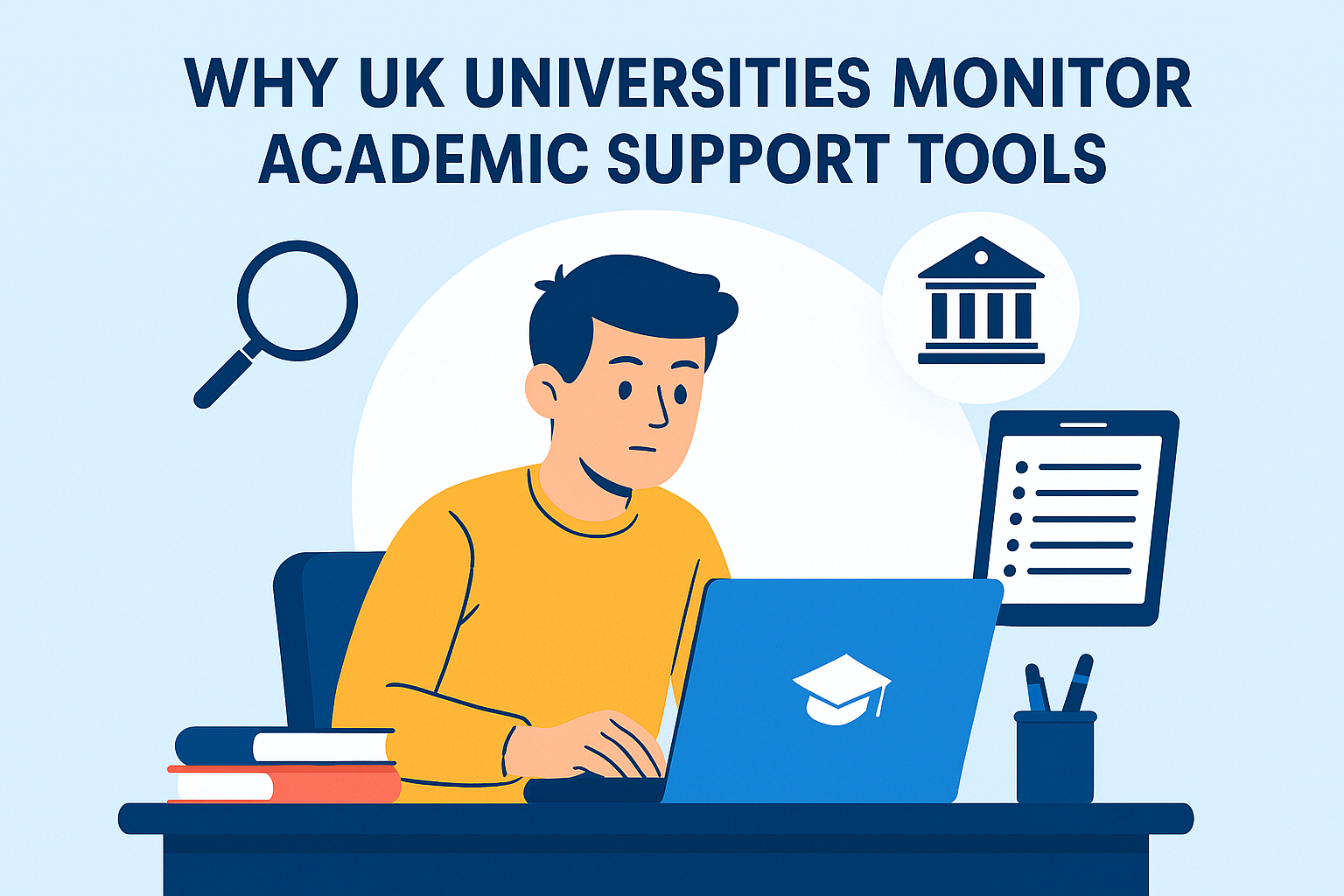Why UK Universities Monitor Academic Support Tools
Přidal adamsmith, dne 8. 04. 2025, 0x

Academic support tools are now a common part of university life. Many students use them to manage their assignments, research, and deadlines. As the use of such tools increases, universities have started keeping a closer eye on how they are used. This includes services like Assignment Expert UK, which are gaining popularity among students for their fast and tailored assistance.
Monitoring these tools is not only about checking for fairness but also about protecting academic standards. It helps universities understand whether students are getting help in a way that supports their learning rather than replacing it.
The Growth of Digital Academic Support in the UK
Over the last decade, academic support platforms have grown rapidly across UK universities. These platforms include note-sharing websites, essay-writing services, tutoring forums, and assignment help providers. Students often search for help due to time pressure, language barriers, or complex topics.
Services such as Assignment Expert UK offer customized academic help across many subjects. These platforms appeal to students who want quick guidance. However, some students misuse these services, which leads to concerns about academic integrity.
Why Academic Integrity Matters to Institutions
Academic integrity is the foundation of university education. It ensures that degrees hold value and that students gain knowledge through their own efforts. When a student submits work that they did not create themselves, it raises questions about their learning and the credibility of the institution.
UK universities are expected to meet strict academic standards set by national education bodies. If students rely too much on external services, universities risk violating these standards. That's why academic monitoring becomes a necessity rather than an option.
What Triggers University Monitoring?
Several factors cause universities to monitor academic support tools more closely:
- Sudden changes in writing style
- Submissions that don't match previous performance
- Unusual formats or citation styles
- High similarity in plagiarism detection reports
- Suspicious submission patterns
These triggers are often detected by software and then reviewed by academic staff. Monitoring does not aim to punish students but to ensure fair academic practices.
How Assignment Expert UK Falls Under the Radar
Assignment Expert UK and similar platforms offer services that can blur the line between academic help and academic dishonesty. While some students use these services for guidance, others might submit the purchased content as their own.
This practice directly conflicts with university policies. Monitoring tools look for patterns that suggest a student might be submitting work written by someone else. These patterns include:
- Advanced vocabulary not used previously by the student
- Highly structured academic formats with no errors
- Technical accuracy in weak subjects
These clues raise red flags for academic committees.
Technologies Used by Universities to Detect Misuse
UK universities now rely on smart technologies to track the use of external help:
Plagiarism Detection Software
Turnitin, Urkund, and similar tools check submitted work against vast databases of previously submitted essays, websites, and academic journals.
Authorship Verification Tools
These systems compare writing styles using AI. If a student's writing style changes drastically, the system alerts staff.
IP Tracking and Submission Logs
Some platforms monitor where assignments are uploaded from. A sudden shift in location or timing may indicate third-party involvement.
Internal Databases
Many universities maintain internal databases of assignments submitted by current and past students. Matching content is flagged.
Legal and Ethical Concerns Around Monitoring
While monitoring tools are useful, they raise questions around data privacy and ethics. Students are often unaware of how much data is being tracked. Universities must balance the right to privacy with the need to uphold academic rules.
Some argue that it's unfair to monitor students without clearly explaining what is being tracked. Universities need transparent policies, and students should be educated about what counts as acceptable academic support.
Role of University Policies in Managing Support Services
Most UK universities have clear policies about the use of academic support services. These policies often state that students can seek help with understanding the topic, editing, or feedback—but not with full assignment writing.
Universities regularly update their academic conduct guidelines to respond to the growth of services like Assignment Expert UK. Clear boundaries are defined in student handbooks, explaining:
- What type of help is allowed?
- What actions count as cheating
- What penalties apply for misconduct
By setting these rules, universities aim to guide students rather than punish them.
Balancing Support and Independence in Learning
Support tools can be helpful when used wisely. A student who gets help understanding a topic or improving grammar is not cheating. The issue arises when someone else writes the work.
UK universities want to help students become independent learners. This includes:
- Providing in-house academic support
- Offering writing and language workshops
- Supporting international students with tailored guidance
These services offer the same type of help that external platforms do—without crossing ethical boundaries.
How Students Can Use Services Like Assignment Expert UK Safely
Not every use of academic help is wrong. Services like Assignment Expert UK can support learning if used in the right way. For example:
- Getting examples or samples for a tricky question
- Understanding how to structure an answer
- Reviewing complex concepts in simple words
- Improving research methods
Students should always read university policies before using such services. If unsure, it's safer to ask a tutor or academic adviser.
Impact of Monitoring on Student Behavior
Awareness of monitoring changes how students approach assignments. Many now take extra care to:
- Plan ahead and avoid last-minute panic
- Use internal help services more
- Learn to reference correctly
- Practice writing in their own words
Universities report that monitoring not only reduces cheating but also improves overall academic standards. Students become more responsible and develop better study habits.
The Future of Academic Support in the UK
As technology evolves, so will academic monitoring tools. Universities are also likely to increase collaboration with software companies to improve detection accuracy.
At the same time, the rise of AI tools like ChatGPT and automated writing assistants is creating a new area of concern. These tools make it even harder to track whether a student's work is original.
Universities must keep updating their policies, educating students, and investing in smarter tools. They also need to listen to student concerns and offer better support inside the institution.
Final Thoughts on Responsible Academic Help
The use of academic support tools will continue to grow in the UK. Services like Assignment Expert UK are not going away, and students will keep seeking help outside the classroom.
However, the key issue is how these tools are used. Universities monitor them not to limit learning but to protect fairness, credibility, and long-term academic value. Students who use these tools ethically can gain real support, while still maintaining their academic integrity.
The focus should be on guiding students, promoting independence, and building trust between learners and institutions. By using academic help responsibly, students can succeed without crossing ethical lines.










Komentáře:
Nenacházejí se zatím žádné relace v databázi.